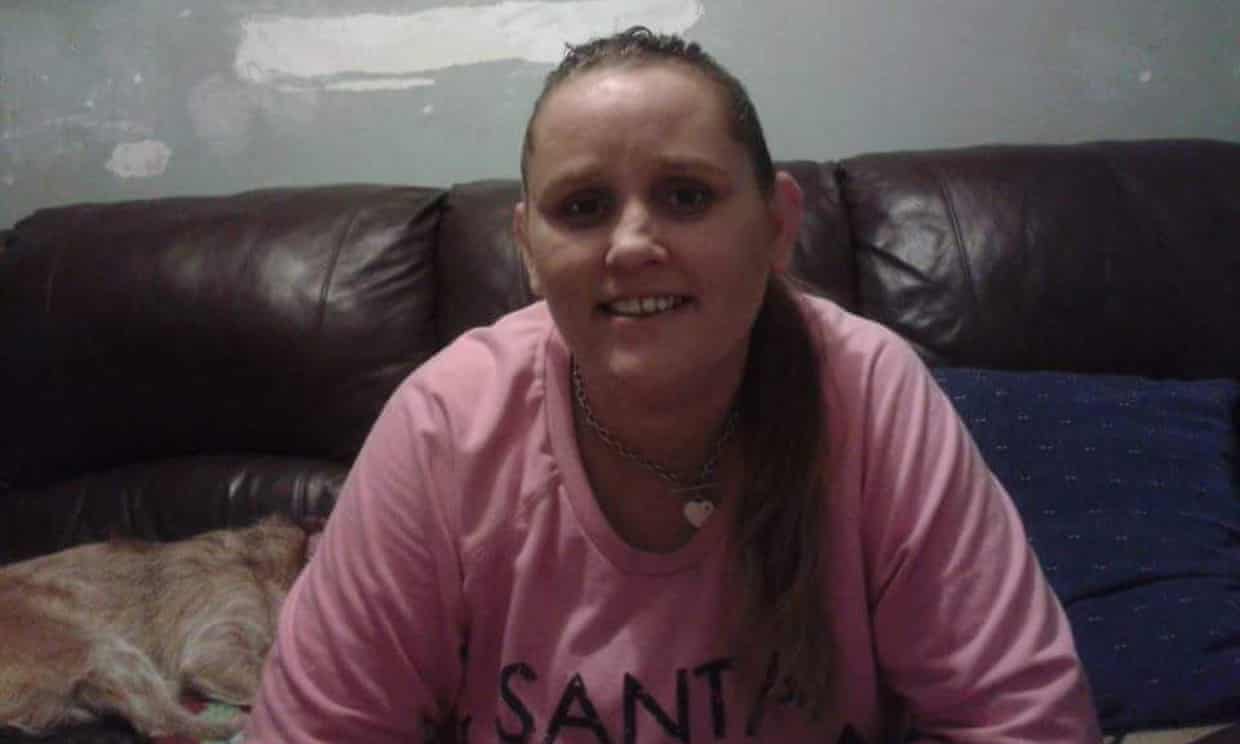
Michelle Bewley
Abby Rudolph and Michelle Bewley never met each other, and yet they are mirror-image sisters in the wasteland that is the criminal justice system in the United States. Both died, or were killed, in a Clay County Jail. Abby Rudolph died November 3, 2016, in the Clay County Jail, in northwest Minnesota. Michelle Bewley died March 5, 2019 in the Clay County Jail, in northeast Florida. Abby Rudolph was 19 when she died; Michelle Bewley was 35. Both were arrested for shoplifting. Both were addicted; went into withdrawal while in jail; asked, begged, for help. None came, or, better, help was refused. In both cases, the local agency decided the staff was professional and did what they could. In both instances, family, friends and sister inmates disagree. Both Abby Rudolph and Michelle Bewley died in excruciating agony, begging and pleading for help. Both, in their deaths, became `newsworthy’ in the past couple weeks. This is who we are.
The details for Abby Rudolph and Michelle Bewley are the same as those for Chuneice Patterson, Onondaga County Justice Center, New York, 2010; Amy Lynn Cowling, Gregg County Jail, Texas, 2010; Christina Tahhahwah, Lawton, Oklahoma, 2014; Madaline Christine Pitkin, Washington County Jail, Oregon, 2014; Natasha McKenna, Fairfax County Jail, Virginia, 2015; Sarah Lee Circle Bear, Brown County Jail, South Dakota, 2015; Joyce Curnell, Charleston County Jail, South Carolina, 2015; Kellsie Green, Anchorage Correctional Complex, Alaska, 2016; Madison Jensen, Duchesne County Jail, Utah, 2016; Brianna Beland, Charleston County Jail, South Caroline, 2017, Kelly Coltrain, Nevada, 2017. Every one of these women died in agony, screaming and begging for care.
On March 4, 2019, Michelle Bewley was picked up for having violated her bond on a shoplifting charge and was dumped in the Clay County Jail. There she went into withdrawal. According to Brittany Wink, who was in a nearby cell, “She was just screaming in pain. You could tell they were pain screams.” This is not a case of “no one came”; it never is. This is a case of they all refused to come. You could tell they were pains screams. Within 24 hours of entering the Clay County Jail, Michelle Bewley was dead … for the crime of having violated her bond. Her cousin, Amanda Snyder, reflected, “She was a very loving, kind person. And she didn’t deserve this. Nobody deserves this … I love her regardless of the mistakes she has made because that doesn’t define her as a person. Because she was a caring person. She loved her family. And I hope this never happens to anybody else’s family member.” Michelle Bewley leaves behind a husband and a young daughter.
In her junior year in high school, Abby Rudolph suffered a broken hip, which led to using pain medication which led to pain medication addiction. On October 30, 2016, Abby Rudolph, then 19 years old, was arrested for shoplifting and was dumped in the Clay County Jail. Soon after, she begin showing symptoms of withdrawal. Her fellow inmates wrote a note, delivered October 31, 2016, saying that Abby Rudolph was not eating or drinking, was in a bad way, and needed assistance. The inmates said they were worried; the staff refused to respond. On November 1, at 5 am, Abby Rudolph told the staff she could not eat breakfast. The staff did nothing. At that point she began vomiting. She continued to vomit for two days, until November 3. At 2 pm, November 3, the staff “noticed” something. Abby Rudolph was cold to the touch, and the staff took her to the showers. She couldn’t stand on her own, slumped to the floor, became spasmodic, and died within the hour.
The family has filed a civil lawsuit. Their attorneys argue that the abuse showered on Abby Rudolph exceeds “mere negligence” and shocks “the conscience.” Does it? I ask you, directly, are you shocked? Jill Rudolph, Abby Rudolph’s mother, filled the lawsuit in the early part of 2018. In December 2018, Jill Rudolph, 52 years old, died. Her brother explained, “She died of grief. She could not go on.”
Is your conscience shocked yet? Have we suffered enough grief yet, enough to tell us that, if we want to go on, we have to stop caging and executing women? What happened to Abby Rudolph and Michelle Bewley, in their own private Clay County Jail hellholes? Absolutely nothing out of the ordinary.

Abby Rudolph
(Photo Credit 1: Action News Jax) (Photo Credit 2: City Pages)


